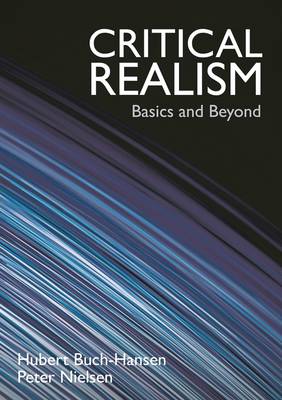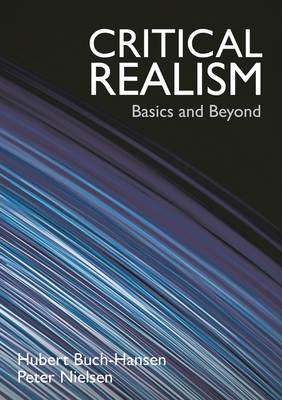
- Afhalen na 1 uur in een winkel met voorraad
- Gratis thuislevering in België vanaf € 30
- Ruim aanbod met 7 miljoen producten
- Afhalen na 1 uur in een winkel met voorraad
- Gratis thuislevering in België vanaf € 30
- Ruim aanbod met 7 miljoen producten
Zoeken
€ 90,95
+ 181 punten
Uitvoering
Omschrijving
Winner: Cheryl Frank Memorial Prize for innovative writing on critical realism
This new textbook offers a succinct yet broad introduction to critical realism, an increasingly popular approach to the philosophy of science that provides a holistic alternative to both positivism and postmodernism.
This text sets out the central concepts, arguments and understandings in critical realism and relates them to social scientific practice. In addition to answering the question 'what is critical realism?', the authors consider critical realism in light of two crucial themes in contemporary society - neoliberalism and climate change - which run as common threads throughout the chapters. While some introductions to the topic focus exclusively on the work of Roy Bhaskar - critical realism's best-known proponent - this text covers a much wider range of thinkers and social researchers, and also features Key Concept boxes and CR in Action boxes throughout to aid the reader through this complex yet rewarding subject.
This text is the perfect entry point for all those studying critical realism for the first time, or for those seeking to re-familiarise themselves with this approach. Whether you're studying critical realism as part of a broader course on the philosophy of science or seeking to apply critical realist methods to a particular research project, this book is essential reading for the social sciences, humanities and beyond.
Specificaties
Betrokkenen
- Auteur(s):
- Uitgeverij:
Inhoud
- Aantal bladzijden:
- 168
- Taal:
- Engels
Eigenschappen
- Productcode (EAN):
- 9781352010671
- Verschijningsdatum:
- 2/09/2020
- Uitvoering:
- Hardcover
- Formaat:
- Genaaid
- Afmetingen:
- 140 mm x 216 mm
- Gewicht:
- 353 g

Alleen bij Standaard Boekhandel
+ 181 punten op je klantenkaart van Standaard Boekhandel
Beoordelingen
We publiceren alleen reviews die voldoen aan de voorwaarden voor reviews. Bekijk onze voorwaarden voor reviews.








